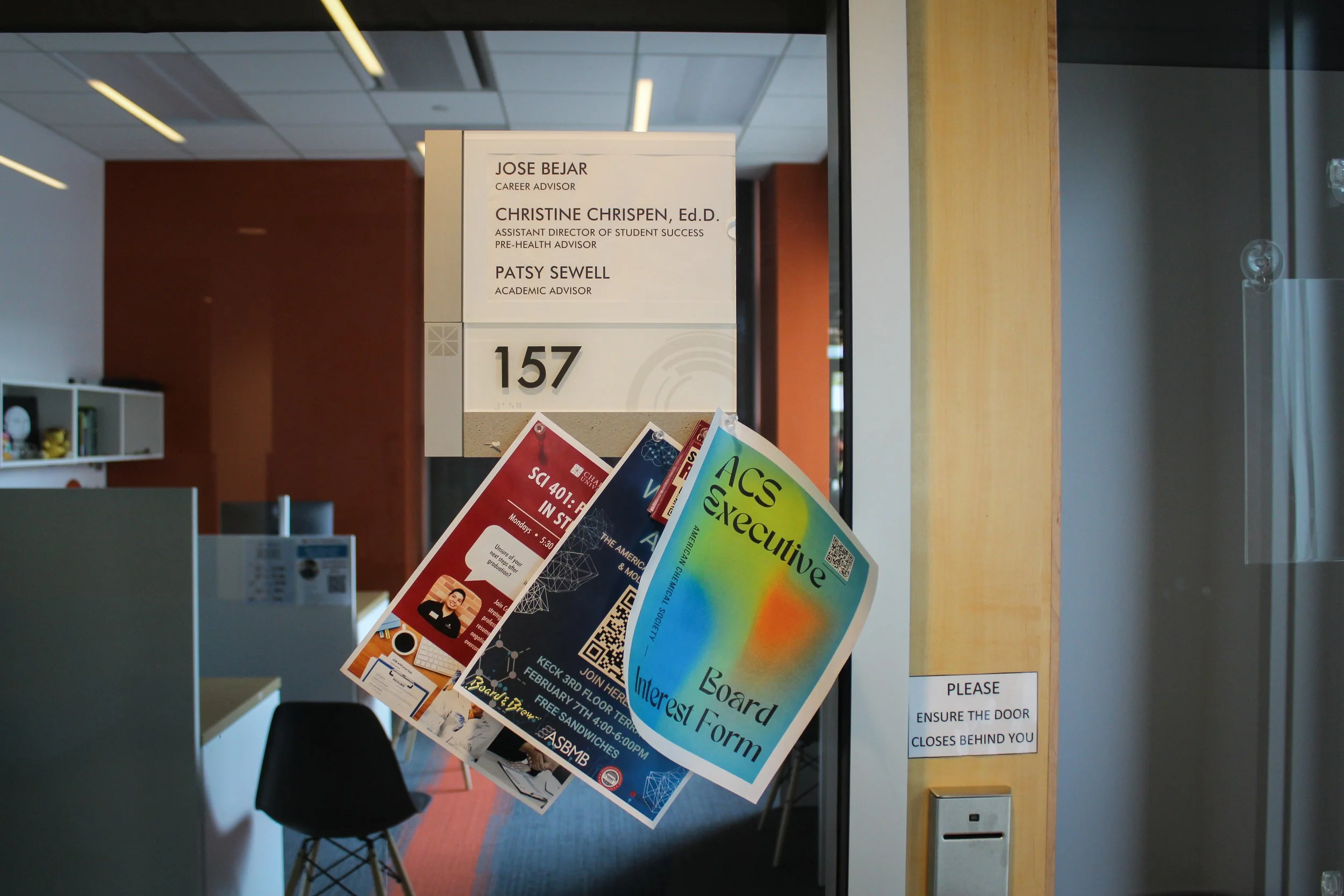Chapman implements new changes for its academic advising program
To help with distributing academic help, individual schools and colleges within Chapman now have their own dedicated academic advisors. Photo by EMI THOMAS, Staff Photographer
At the start of the spring semester, Chapman began a new advising process for students that includes their own advisor. By combining the program and academic advisor roles, each school now has its own advisor and will pair each student with their major or minor. Students will be able to ask their advisor any questions about their major, minor or general education (GE) requirements.
However, for the Argyros College of Business and Economics, advisors will be distributed based on the student’s last name due to the popularity of the majors, according to Emma Floyd, a Chapman alumna who graduated in 2022 and is the academic advisor for Argyros College.
Students who have double majors are able to contact both of their advisors from both colleges, according to Floyd.
This change was brought up in the fall semester when advisors shared the same realization: continuing and new students were confused about the difference between program advisors and academic advisors.
So far, students and faculty have shared positive thoughts about the change, indicating that the advising process has been less complex and more engaging, especially during the beginning of the semester.
Floyd emphasized that the new change has been benefiting students more than the previous system.
Before, each student would refer to both an academic advisor and a program advisor. Each school would have its own program advisor, specifically for major and minor questions. Academic advisors would help students with questions about graduation, adding or dropping a major or minor and overall credit questions.
“Academic advisors were for GE questions and program advisors were more major-specific,” Floyd said. “With the new system, they’ve merged those two roles, so students don’t have to go to multiple people.”
In previous years, advisors have noticed the continuous confusion that new and continuing students have with academic and program advisors. One instance of this confusion was when students asked major questions to academic advisors when they should be asking program advisors major-related questions.
Floyd, who majored in business administration while she was at Chapman, is currently in the process of receiving her MBA from Chapman.
“Coming from being a student, I was always frustrated when I had to go to multiple people to ask a question,. So now, students have a designated person who can help them with any question they have.”
With this change, students also have the opportunity to build relationships with their advisors and can ask them any questions they might have. Whether through email or appointment.
Junior public relations and advertising major Chloe Wong works for the newly changed academic advising center at Dodge.
“I think this change is positive,” Wong told The Panther. “Overall, it causes less confusion about where to go to see your advisor.”
While many would acknowledge the positive aspects of this change, some new aspects of the change would create an inconvenience for many students. Because of the new change, there are only limited hours throughout the week for walk-ins, which would only take place on Mondays and Thursdays. Other weekdays are reserved for students who have a scheduled appointment.
“Because the advisors have fewer students in general to advise, they will probably prefer scheduled appointments as opposed to having walk-in hours like before,” Wong said. “I think this will affect students that have last-minute questions when class enrollment comes around.”
Students will be able to locate their academic advisor through the “Find Your Advisor” website by adding their major and seeing who their advisor is. Each advisor has their own portfolio that includes their contact information and a biography about themselves.

